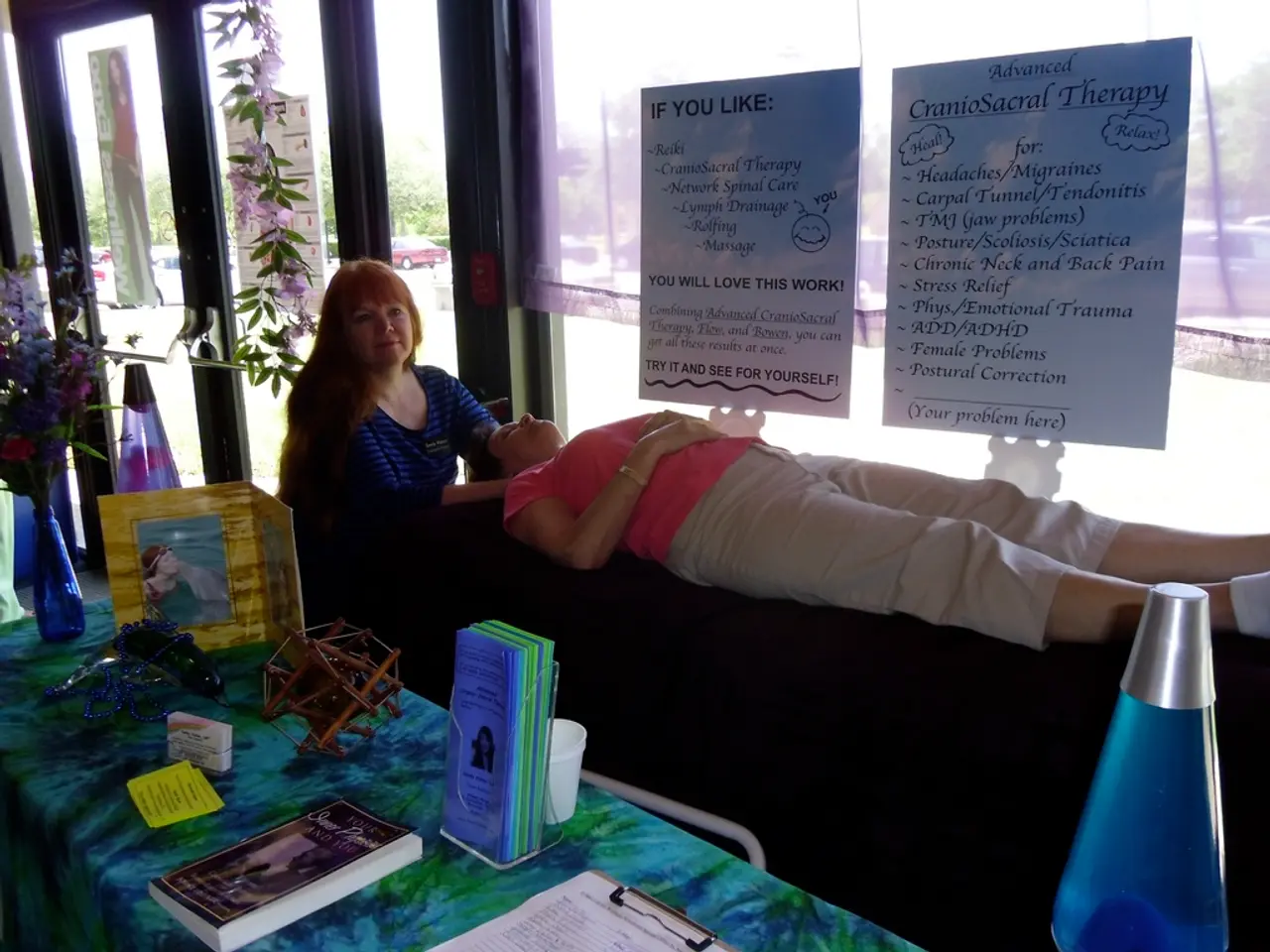Unraveling the Question: Anxiety - Cure or Management?
Anxiety, a clinical pathology characterized by irrational fears towards people, objects, or situations, is a common mental health issue that affects many individuals worldwide [1]. It is generally not considered that anxiety can be fully cured; rather, it is primarily managed through therapy, lifestyle changes, and medication.
Therapy, especially Cognitive-Behavioral Therapy (CBT), is a first-line and research-backed approach that helps individuals identify and change unhelpful thought patterns and behaviors related to anxiety [1]. A stable routine in work, relationships, and daily activities is a sign of controlled anxiety, as is the ability to respond to unforeseen challenges or situations without having anxiety [1].
Medications help by balancing brain chemistry to improve mood and reduce physical symptoms, though they often come with potential side effects and are not a standalone cure [2]. Antidepressants (SSRIs or SNRIs) such as sertraline, fluoxetine, or venlafaxine, can help regulate serotonin levels. In moderate or severe cases, a psychiatrist may recommend benzodiazepines such as alprazolam or clonazepam, but they are not the first option due to their dependence potential [2].
Lifestyle changes—such as regular physical exercise, a balanced diet, good sleep, and socialization and emotional support—also play a key role in managing anxiety symptoms [2]. Mindfulness is effective against anxiety by allowing emotions to better manage without suppressing or exaggerating them. Learning relaxation techniques and emotional regulation is a benefit of psychological therapy [2].
Other therapies, such as Acceptance and Commitment Therapy (ACT) and psychodynamic therapy, can also help with anxiety, depending on the person and the type of anxiety [4]. Controlled exposure, or progressive exposure to situations that generate fear, is a technique used in psychological therapy [1].
When anxiety is controlled, there is less avoidance of situations that previously generated anxiety. Sporadic episodes of anxiety are common when anxiety is controlled, but manageable symptoms of anxiety do not interfere significantly with daily life [1]. Confidence in recovery and feeling that one has control over their mental state could indicate that anxiety has been cured [1].
It is important to remember that the prognosis for anxiety treatment varies depending on the person, type of disorder, and individual factors [1]. Regular monitoring and ongoing support are crucial for maintaining control over anxiety and preventing relapse.
In conclusion, anxiety is viewed as a condition that can be effectively managed but usually not completely cured, with ongoing treatment aimed at symptom reduction, functional improvement, and prevention of relapse [1]. With the right combination of therapy, medication, and lifestyle changes, individuals can lead fulfilling lives despite anxiety.
[1] American Psychiatric Association. (2013). Diagnostic and Statistical Manual of Mental Disorders (5th ed.). Arlington, VA: American Psychiatric Publishing. [2] National Institute of Mental Health. (2020). Anxiety Disorders. Retrieved from https://www.nimh.nih.gov/health/topics/anxiety-disorders/index.shtml [3] National Center for Complementary and Integrative Health. (2020). Anxiety. Retrieved from https://www.nccih.nih.gov/health/anxiety [4] National Institute for Health and Care Excellence. (2018). Generalised Anxiety Disorder: Management of Generalised Anxiety Disorder in Adults in Primary, Secondary and Community Care. Retrieved from https://www.nice.org.uk/guidance/cg113
- Cognitive-Behavioral Therapy (CBT) is a researched method used to help individuals recognize and alter detrimental thought patterns and behaviors related to anxiety.
- A stable routine in personal, professional, and daily activities indicates controlled anxiety, as does the ability to respond to unforeseen challenges without experiencing excessive anxiety.
- Antidepressants such as sertraline, fluoxetine, or venlafaxine can assist in regulating serotonin levels, which may help individuals manage anxiety symptoms.
- Mindfulness practices can be effective in managing anxiety by allowing emotions to be experienced without being repressed or amplified.
- Acceptance and Commitment Therapy (ACT) and psychodynamic therapy can also help with anxiety management, depending on the individual and the type of anxiety.
- Controlled exposure to feared situations is a technique used in psychological therapy to help individuals gradually overcome their anxiety.
- Confidence in recovery and feeling in control of one's mental state can indicate that anxiety has been effectively managed, but not necessarily cured.
- The effectiveness of anxiety treatment varies depending on the person, type of disorder, and individual factors, requiring ongoing monitoring and support.
- Healthy diets, regular exercise, good sleep hygiene, and emotional support play a crucial role in managing anxiety symptoms.
- The National Institute of Mental Health provides resources on anxiety disorders, including their causes, symptoms, and treatment options.
- The National Institute for Health and Care Excellence offers guidance on the management of generalized anxiety disorder in adults, providing recommendations for primary, secondary, and community care.




